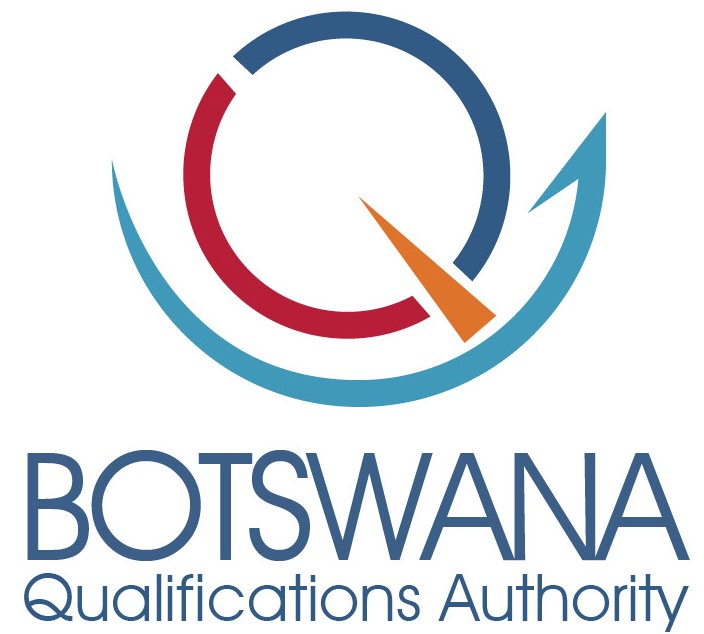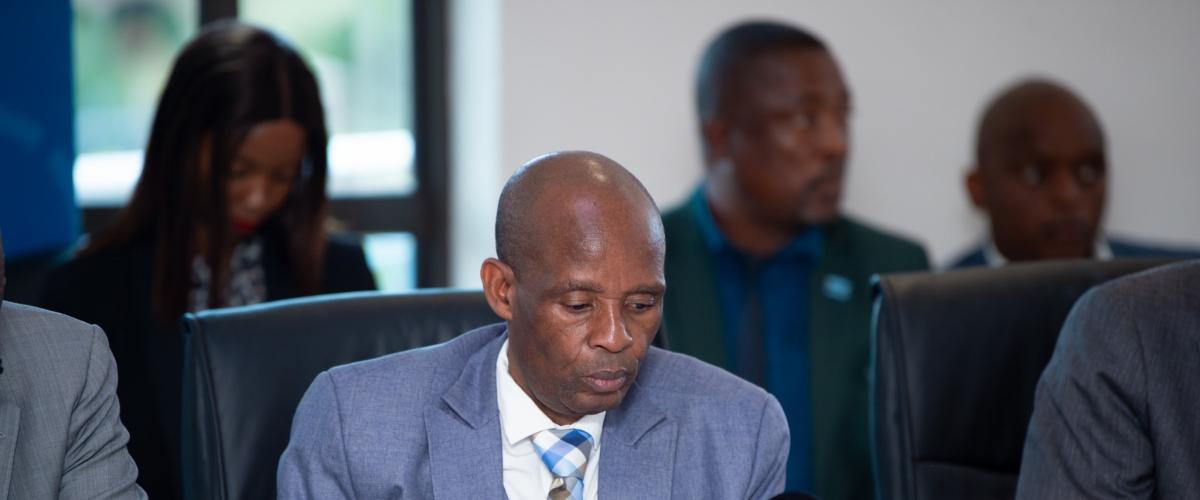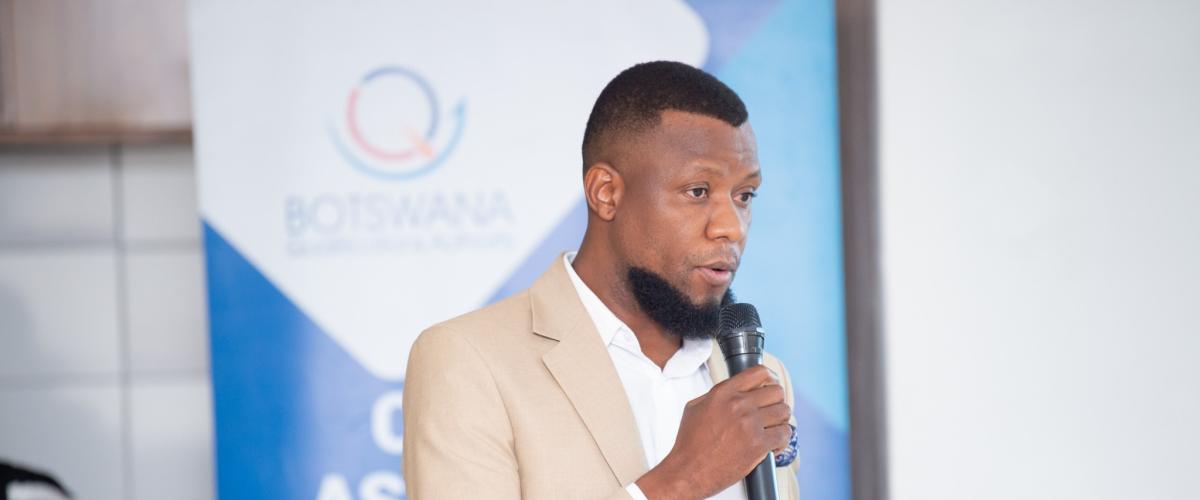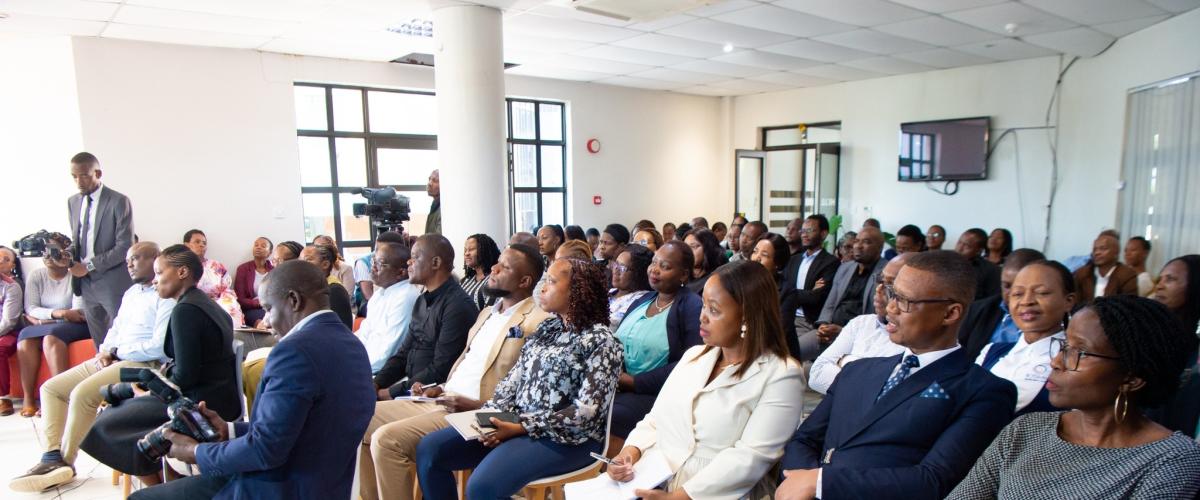Botswana Qualifications Authority (BQA) recently had the distinct honour of hosting the Minister of Higher Education, Honourable Prince Maele, accompanied by a high-level delegation from the Ministry.
The delegation included the then Assistant Minister, Honourable Justine Hunyepa, Permanent Secretary Prof. Nelson Torto, Deputy Permanent Secretary Ms. Erica Ndlovu, and other senior Ministry officials. The purpose for the visit was for the Ministry to deepen its understanding of BQA’s mandate, gain insight into the Authority’s achievements and challenges, explore opportunities for collaboration, and identify ways to strengthen Botswana’s education and training system.
BQA executive management provided a comprehensive overview of the Authority’s vision, strategic objectives, and current initiatives, emphasizing the pivotal role the Authority plays in shaping the nation’s education landscape. They detailed efforts to enhance the quality and credibility of Botswana’s education and training system through the National Credit and Qualifications Framework (NCQF), robust quality assurance mechanisms, and continuous engagement with key stakeholders at both national and regional levels.
The management team also highlighted several key initiatives currently underway. These include improving the recognition of qualifications to ensure learners can seamlessly transition between education and the labour market, fostering innovation in curriculum development, and strengthening partnerships with industry to align educational outcomes with workforce needs. These initiatives, the team noted, are critical in ensuring that BQA remains a cornerstone of Botswana’s educational framework while supporting the country’s socio-economic development agenda.
A significant portion of the session was dedicated to staff welfare, a topic that underscored the Authority’s commitment to building a motivated and empowered workforce. A presentation by the Staff Union Representative provided the visiting delegation with firsthand insight into employee experiences, perspectives, and concerns. The discussion highlighted the crucial link between staff well-being and the successful delivery of BQA’s mandate, emphasizing that the dedication, expertise, and engagement of employees are central to the Authority’s achievements.
Minister Maele, in his remarks, commended BQA for its strategic contributions to Botswana’s education ecosystem. He emphasized that the Authority’s work directly impacts the nation’s socio-economic development, and that a credible, quality-driven education system is essential for Botswana to transition successfully into a knowledge-driven economy. “BQA is not just an Authority, it is a cornerstone in building the future of this country. We as the Ministry will provide the necessary support to ensure you deliver on your mandate effectively,” the Minister affirmed.
Beyond recognition, the Minister also called for continued innovation, collaboration, and proactive engagement with both public and private sector stakeholders. He highlighted the importance of aligning Botswana’s qualifications with regional and international standards, noting that such alignment enhances the country’s competitiveness, supports workforce mobility, and strengthens the employability of learners. Minister Maele also encouraged the Authority to continue exploring innovative approaches in teaching, learning, and assessment, as these are critical for preparing students to meet the demands of a rapidly evolving global economy.
The dialogue was not limited to formal presentations and speeches. Staff members engaged directly with the delegation, asking questions and sharing ideas on how BQA can continue improving its service delivery and overall impact. These interactions provided the Ministry leadership with a practical perspective on day-to-day operations, challenges, and successes within the Authority. They also fostered a deeper appreciation of the dedication and professionalism exhibited by staff in their commitment to advancing Botswana’s education system.
The visit concluded with a shared sense of purpose and renewed energy among both staff and management. It reinforced the Ministry’s unwavering support for BQA and highlighted the importance of strong collaboration between the two institutions in achieving a seamless, credible, and quality-driven education and training system. For staff, the visit served as both recognition and motivation, reaffirming that their efforts are valued and essential to the country’s broader development objectives.
This engagement demonstrated that progress in education is not solely about policy and regulation, but also about cultivating a culture of excellence, collaboration, and shared responsibility. The Authority’s commitment to continuous improvement, combined with the Ministry’s support, positions Botswana to meet the challenges of a knowledge-based economy and to provide learners with the skills and opportunities they need to succeed.




